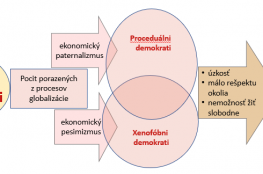After two study stays in Estonia and Lithuania and almost two years of research I finally met my target. The Master Thesis is done. Due to the fact that it relates to the reform process in the Baltic States I decided to present shortly my findings on this blog.
Despite having idea about lot of reforms in Estonia, Latvia and Lithuania, the paper deals only with these three fields: Higher Education, Old-age pensions and Monetary policy. The basic question is – why did the Baltic states do these reforms, and why there was a different pace and design in each of the countries. I was able to identify 4 major factors, that are in my opinion responsible for speeding up and deepening of the reform process (or block it on the other hand). These are:
- presence of a crisis acknowledged by the government
- presence and strength of domestic epistemologic community
- pressure of international organizations
- presence of effective veto-players
The stronger are first three of them, and weaker the last one, the sooner will be reforms introduced. Of course, one must be aware of the fact that different fields of public policy have different crisis, veto-players or international organizations involved. However, generally, these four factors explain different timing and design of reforms in the Baltics (and I am convinced that also in the other small open post-communist economies).
Hereunder is a preview of the factors and their strength in different countries expressed in numbers (O – no or very small, 1 – medium, 2 – very strong, crucial).


